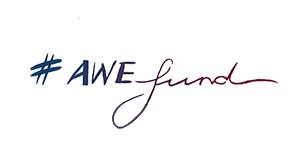An Interview with Jessica Chapel and Lydia Tang
In this post, CLIR Director of Global Strategic Initiatives Nicole Kang Ferraiolo interviews Jessica Chapel and Lydia Tang, who launched the Archival Workers Emergency Fund.
What do you normally do professionally when you’re not responding to COVID-19-related challenges?
Jessica Chapel: I manage digitization and digital collections as the librarian/archivist for digital projects in the Harvard Law School Library.
Lydia Tang: I’m the Special Collections archivist at Michigan State University. I arrange and describe incoming archival collections.
What is the Archival Workers Emergency Fund (AWEF)?
 Jessica Chapel: AWEF is a support fund for any archival worker experiencing financial hardship because of the COVID-19 crisis. In early March, as repositories began to close and shift to remote work, we saw a lot of colleagues, many already in precarious, contingent jobs, getting laid off, furloughed, or told that their hours would be cut. The fund was created to help meet an urgent need in a difficult time. AWEF is open to all archival workers—SAA membership is not required—and provides up to $1,000 in aid to applicants.
Jessica Chapel: AWEF is a support fund for any archival worker experiencing financial hardship because of the COVID-19 crisis. In early March, as repositories began to close and shift to remote work, we saw a lot of colleagues, many already in precarious, contingent jobs, getting laid off, furloughed, or told that their hours would be cut. The fund was created to help meet an urgent need in a difficult time. AWEF is open to all archival workers—SAA membership is not required—and provides up to $1,000 in aid to applicants.
What is AWEF’s funding source?
Jessica Chapel: The SAA Foundation generously provided $15,000 in seed funding. But the majority of the funding is coming through individual donations. We’ve also received donations from several other archival organizations. By the end of April, the fund had raised more than $67,000 from almost 500 donors.
Lydia Tang: We’ve been delighted with the response. This is a time when a lot of people are coming together to help our most vulnerable colleagues.
What inspired you to create this fund?
Jessica Chapel: It was seeing how quickly colleagues’ lives were being turned upside down by the crisis. It seemed like a moment that called for collective action—to do something that could, in some small way, ease each other’s anxiety about what was happening.
Lydia Tang: I’m also a freelance musician, so I bridge those two worlds. I saw that a lot of my musician colleagues were losing work and I knew that was going to happen for contract and freelance archivists as well. There can be an assumption that archivists only work with physical folders and boxes, and therefore couldn’t work remotely, which isn’t true! But that preconception would make us vulnerable to staffing cuts.
What were some of the considerations you made when designing it?
Jessica Chapel: It’s important to stress that this was a grassroots effort. We put out a call and people from all over the U.S., working in all kinds of institutions, joined the organizing committee. The fund is the result of many people’s work. We wanted to ground the AWEF in the principle of mutual aid—not charity. We were guided by the belief that it should be about caring for one another. We designed it so there are no requirements for the recipients to do anything in return—the money goes to them free and clear. That was something that was really important to us.
Lydia Tang: In our survey prior to launching the AWEF, several people indicated that they were having trouble accessing governmental aid and we thought it was important to have a recovery fund that was more direct. We also wanted to support people who may be falling through the cracks, such as people who recently relocated or otherwise may not be eligible for state/governmental aid.
What has the applicant response been like?
Jessica Chapel: Applications opened on April 15th and we had about 85 applications as of April 30. SAA plans to run the fund as a pilot program through December 31, 2020 and I anticipate that we will see applications grow steadily through the entire period. In the first pool of applicants we looked at, it struck me that there seems to be no region and no archival job category that hasn’t been hit. The need was spread through every part of the country, every repository type, and every sector.
What have you learned from this experience?
Lydia Tang: I have appreciated working with the people on the organizing committee and the wisdom that’s there. As we waded through the applications, it was helpful to turn to the rubric and proposal that were forged by many minds and perspectives.
Jessica Chapel: It’s made clear to me that this is a field that sees itself as a community, and it will respond to its members’ needs. There’s a lot of generosity. I guess I shouldn’t be surprised by that because going into archival work is a generous impulse, so why wouldn’t that be expressed in other ways too?
You can make a donation or apply to the Archival Workers Emergency Fund here.
Editor’s note: This is the eighth piece in COVID (Re)Collections, a series exploring responses to the COVID-19 pandemic by library, cultural heritage, and information professionals. Stories are proposed by the authors/contributors and reflect their personal experiences and perspectives at the time of submission. Learn more about the series and share your own story here.

